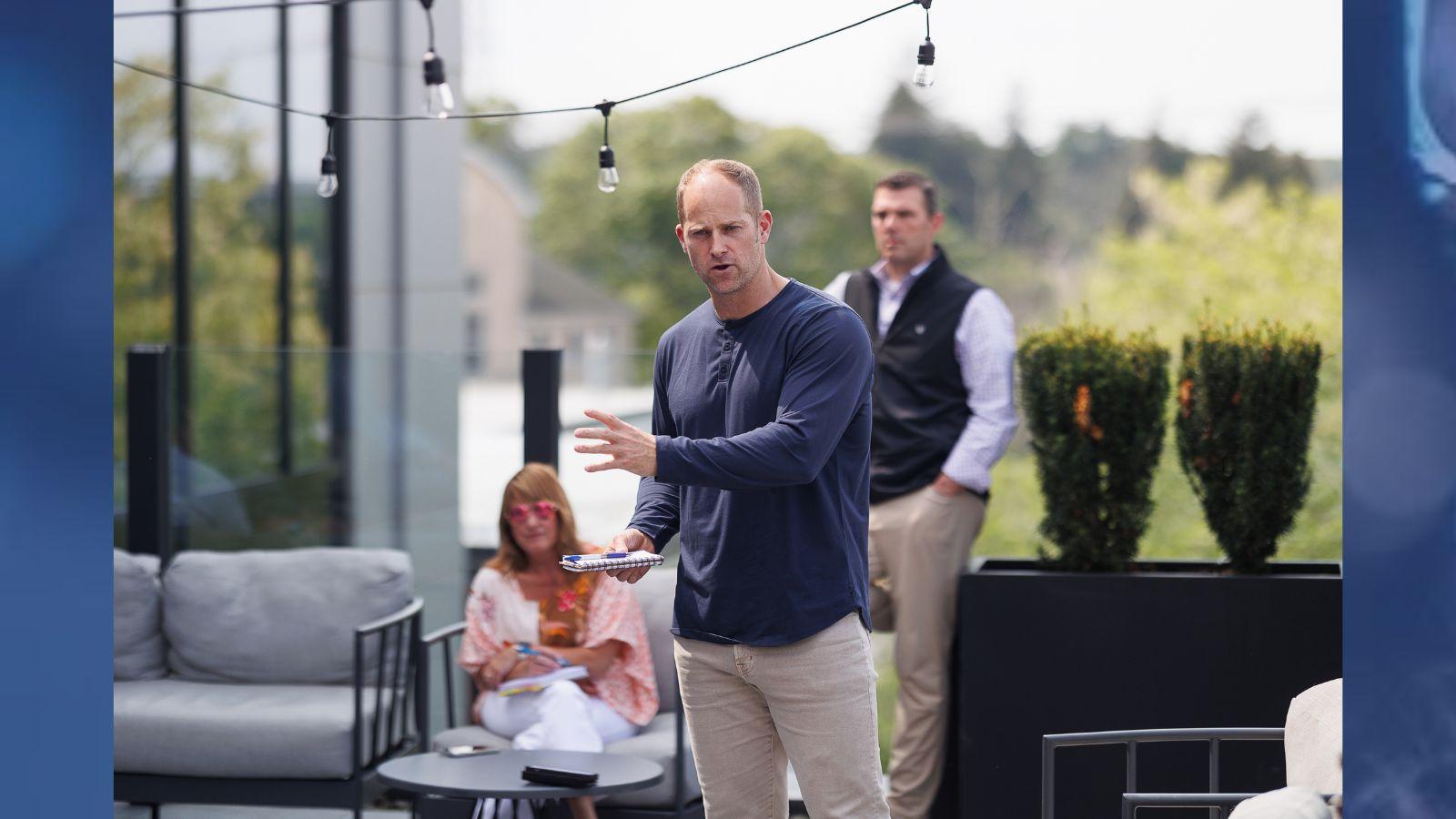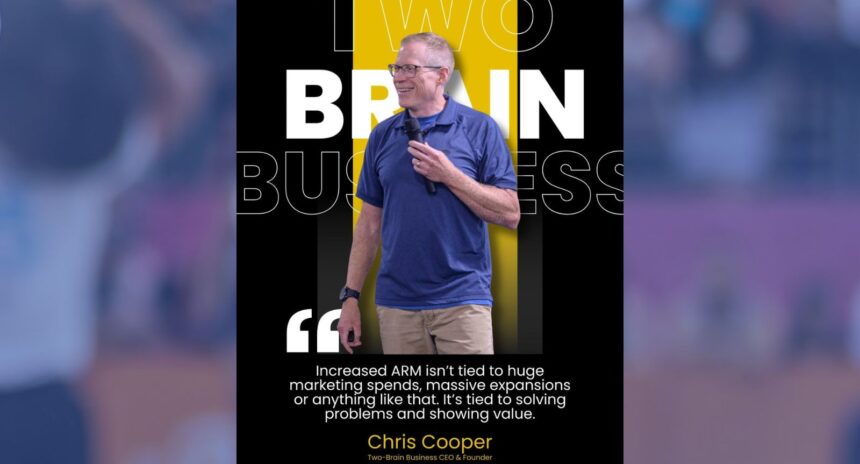Financial Myths and Mistakes Holding Gym Owners Back, According to Forging Elite Finance

For most gym owners, opening an affiliate is more than simply starting a business. It’s about following a passion.
But passion doesn’t always pay the bills. When it comes to finances – both personal and business – many owners feel stressed from working hard and barely paying themselves.
This is precisely the problem that long-time financial advisor Ben Beck aims to address.
- Earlier this year, his firm, Beck Bode, launched Forging Elite Finance, an educational arm of the business that provides tools, guidance, and accountability to gym owners and athletes so they can build long-term financial resilience.
Beck and Josh Plosker, who owns five CrossFit affiliates in the Boston area, have already been working with more than a dozen CrossFit Games athletes and an increasing number of affiliate owners.
So, what are the biggest mistakes and myths holding gym owners back personally and professionally? And how can they improve their financial outlook?
Those were the questions we put to Beck.
Personal Finance Myth: Ignoring Them Until Your Business is Making Money
Many gym owners who pay themselves a modest salary and whose businesses aren’t generating real profit often believe that investing their personal earnings to grow their money is something only the already wealthy do.
- “I certainly get it,” Beck told the Morning Chalk Up. “A gym owner is pouring everything they’ve got into the gym, and often to the point of burnout. And it’s no surprise the idea of financial planning sounds like something for people who already have a lot of money.”
While Beck empathizes with those owners, he was adamant in his rebuttal: “That is the most wrong outlook you can have.”
Beck likens this mindset to how some people think they need to get in shape before joining a CrossFit gym.
- “You just need to start. Progress over perfection,” he said.
Beck advises that, no matter where you are in your financial journey, you should consult someone with financial expertise who understands the unique challenges of being a gym owner.
- “Just having a conversation can bring a lot of clarity,” he explained.
Furthermore, a conversation can help reduce anxiety, “remove the shame from the equation,” and identify and solidify your goals so you can start laying out a path,” he said.
- “You wouldn’t tell someone struggling with their fitness to go figure it out on their own. You’d coach them,” he added.
Personal Finance Mistake: Not Separating Yourself From the Business
Likely because of the common myth that you need money to invest, one major mistake Beck sees among gym owners is not separating themselves from the business.
- “You are not the business. You need to build wealth outside of it,” he said.
It can be as simple as setting up a solo 401(k), an investment account, or even finding the highest-yielding savings account you can. Then, he advises owners to deposit whatever they can every month to have financial security that doesn’t depend on the gym.
- “I don’t see this being done often, [and] it’s a no-brainer,” he added.
Business Finance Myth: I Just Need More Members
Possibly the most common myth Beck observes gym owners believe about their business is this: “If I just grow my membership, the money will take care of itself.”
It’s a myth that many gym owners cling to, and as a result, they keep chasing more members each month, wondering why they’re never making progress.
- “More sales don’t necessarily equate to greater long-term health,” Beck said. “Chasing more members without a plan is like trying to PR your deadlift every week without addressing form or recovery. Eventually, something breaks. Sheer willpower is not a strategy.”
Instead, long-term financial health depends on understanding how you can increase profitability with your current client base, being disciplined about expenses, offering services your clients value, and creating systems for efficiency.
Business Finance Mistake: Muscling Through Without a Plan
Beck stressed that too many gym owners are trying to “muscle their way through business without a clear and concise plan.”
- “You need to plan to become wealthy,” he said.
Many owners open their gyms without securing enough initial capital, thinking that “sheer willpower will fill the gap.” But oftentimes, it doesn’t.
- “You do need a strategy, not just for things like membership and marketing, but also for things like taxes and payroll and how you’re going to pay yourself,” he said.
One Big Thing
Beck said that too many gym owners are paying too much in taxes because they haven’t optimized their business structure.
- He gave the example of setting up an “S corp,” which allows the owner to pay themselves a salary as an employee of the company, as a valuable way to save in taxes.
Again, this often comes down to talking to the right people who can guide you on what you don’t know. Beck said that doing so “can really help [gym owners] stop losing sleep over whether they can afford to take a week off or not.”
- “It’s kind of like coaching; the feedback changes the game,” he said.
The Big Picture
Although it might seem impossible if you’re a solo gym owner not generating significant revenue, you still need to find a way to prioritize your personal finances because “nobody else is going to,” Beck said.
And if you feel like you’re flying by the seat of your pants and pouring everything into your business, the business starts to run you, he explained.
- “If your personal finances are in chaos and you’re pouring yourself into your passion, you’re really building a life on a foundation that has some cracks in it,” Beck said.
He added, “I know it feels impossible, but perhaps it feels that way because you haven’t either found or sought out the person or the people that can give you some clarity, that can show you how things can be different and impact your future.”
Credit: Guesthouse Creative


